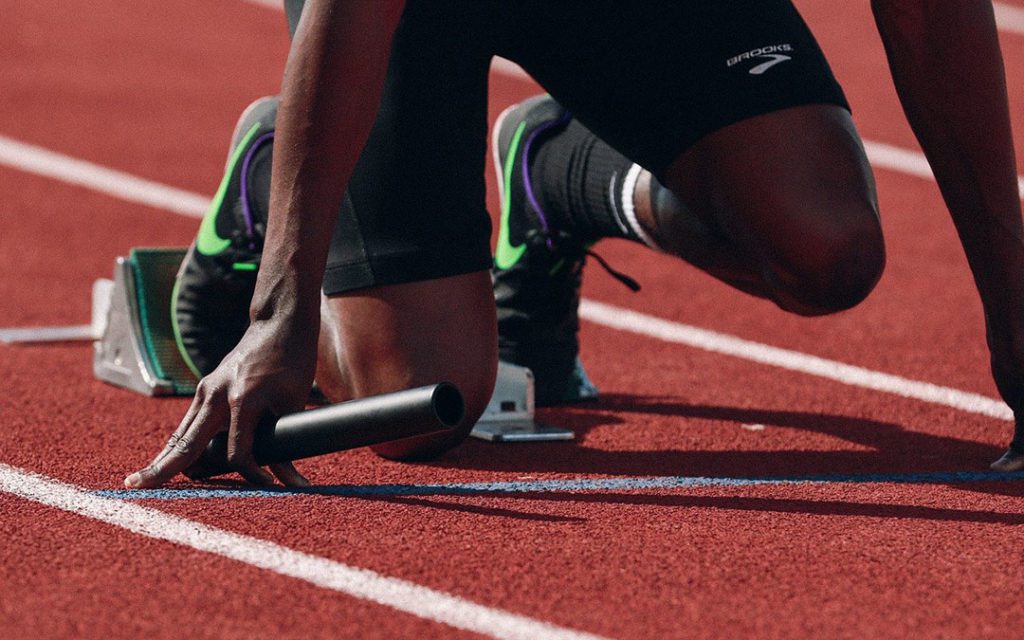This year’s Tokyo Olympics again brought the issue of cannabis and sports to light after track star Sha’Carri Richardson failed a drug test for cannabis at the U.S. trials. This positive test meant that she was disqualified from running the 100 meters at the Olympics, and she was suspended for 30 days from participating in official track events.
The Olympics have only technically punished cannabis use since the late 1990s, though it has been frowned upon for much longer due to its illegality in many nations. For Sha’Carri Richardson, she said that she used cannabis for its mental health benefits rather than the potentially performance-enhancing ones. Other famous Olympic athletes like Michael Phelps and Ross Rebagliati have also come under intense scrutiny for their cannabis use before and after sporting events.
We’re not here today to tell you if using cannabis in sports is right or wrong; instead, we’d like to explore three ways that cannabis can help athletes be their best selves.
Table of Contents
ToggleMental Health
Let’s start with mental health benefits. In Richardson’s case, she stated that she used cannabis to help her cope with the recent death of her mother, but certain strains of cannabis can also help with anxiety, stress, PTSD, and depression. Athletes are under a lot of strain both on and off the field, and cannabis can help lessen the impact of that high-stress environment. Cannabis also helps the body release endorphins, which can make athletes feel more confident about their skills and perform their best.
Some people argue that part of being an athlete is pushing through the mentally tough stuff and focusing on the physicality of the sport, but others say that using cannabis to address mental health levels the playing field. By neutralizing the effects of mental health disorders before, during, or after competition, cannabis supporters claim that athletes with mental health issues are left to rely on their physical abilities the same way athletes without mental health disorders do.
What’s more, some athletes report that cannabis helps them stay focused better during their training regimens, and it can help regulate moods. These two mental health qualities can also improve the quality and impact of each training session.
Pain Management
It’s no secret that being an active athlete can put a serious toll on your body. Contact sports often lead to head, bone, and muscle trauma, but lower-impact sports can still have significant effects. Joint pain, torn muscles and ligaments, and long-term damage to bones are pretty common in sports that are low impact or have no contact at all.
Sports-related injuries bring with them a lot of pain and inflammation, and cannabis can help soothe some of those problem areas. This can enable active athletes to keep training and working toward their goals. Similarly, many athletes who suffer from chronic sports-related injuries like arthritis can continue to have a good quality of life long after those injuries would otherwise stop them from participating.
Scientists still aren’t 100% sure why cannabis helps with inflammation so much, but they know that THC and CBD work well with the body’s natural endocannabinoid system. Somehow cannabis helps trigger the endocannabinoid system so that the body can heal and manage pain better. THC and CBD work best when combined, but topical and ingestible CBD medicines can also decrease inflammation and pain without the potentially psychoactive effects of THC.
Physical Health
Cannabis can help athletes manage and improve their physical health as well. Certain strains can help people get better, deeper sleep, resulting in faster healing and better overall health. Other strains allow the body to relax more, enabling athletes to go deeper in their stretching routines, which improves flexibility and potentially prevents future injuries.
It’s important to say here that every person – athlete or otherwise – will respond to cannabis in a unique way. Factors like age, current physical health, previous usage, weight, genetics, and other preexisting health conditions can influence how cannabis affects the body. Even seasoned users who are athletes should use care when trying a new strain or switching from one method to another (example: cigarette one hitter to dry herb vaporizer or topical cream to tincture).
While the current research shows promising results for athletes using cannabis, athletes should not use cannabis before doing activities that require precision or quick reflexes. Some strains can produce laser focus, but overall, cannabis tends to slow the body’s processes down and is unsafe to use where quick problem solving and judgment are necessary (example: driving or extreme sports).
This is obviously a complicated and controversial topic, but the facts remain that cannabis is becoming the drug of choice for people looking for a more natural way to manage pain and other sports-related ailments. Athletes love their craft, and using cannabis products seems to be the perfect solution for keeping athletes doing what they love.
Video


